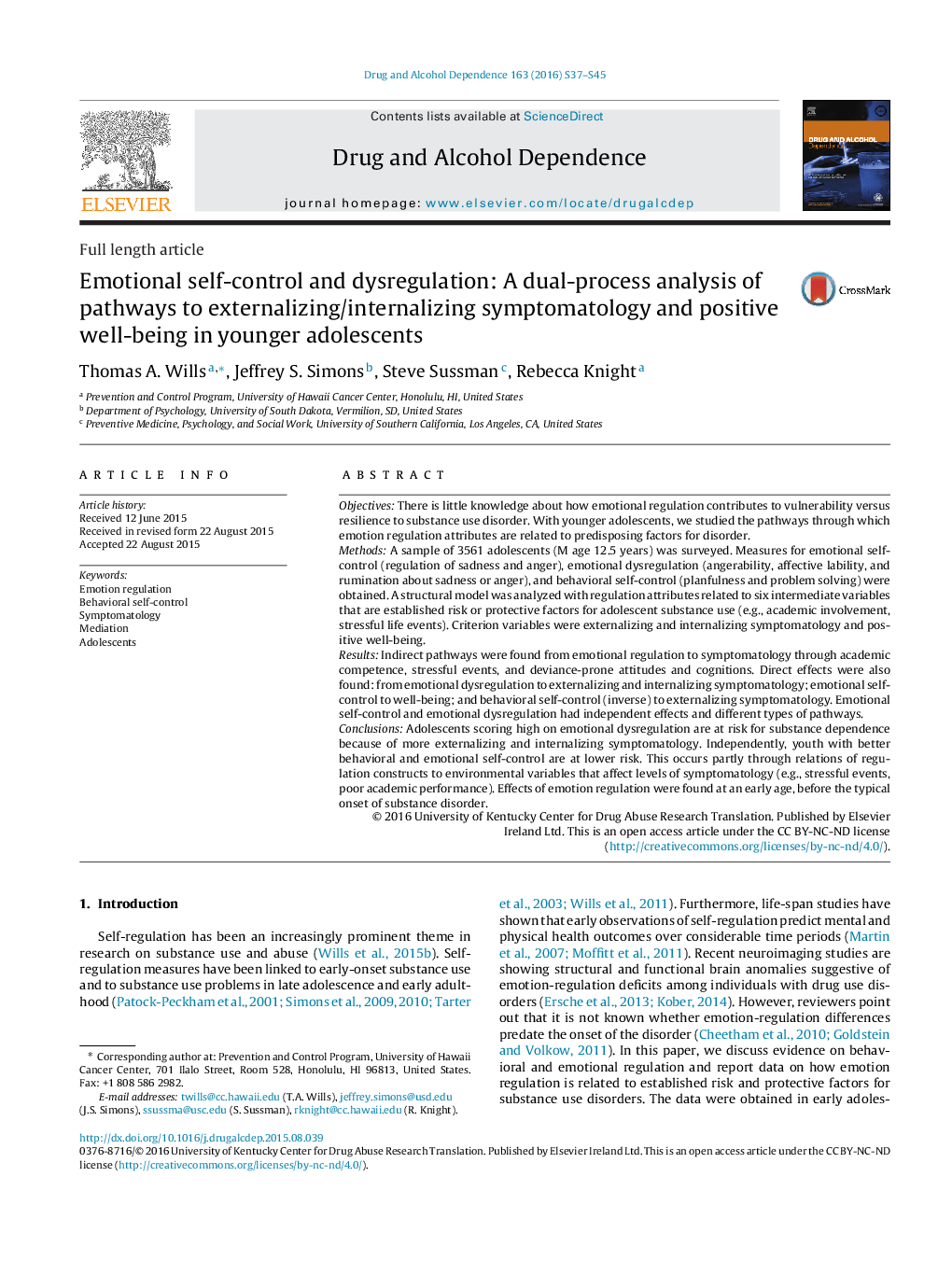| کد مقاله | کد نشریه | سال انتشار | مقاله انگلیسی | نسخه تمام متن |
|---|---|---|---|---|
| 1069692 | 949278 | 2016 | 9 صفحه PDF | دانلود رایگان |
• Emotional self-control and dysregulation were assessed before onset of substance use disorder.
• Self-control and dysregulation made independent contributions to known predictors of disorder.
• Emotional regulation measures were related to several risk/protective factors for substance use.
• Emotional regulation measures had both indirect effects and direct effects to outcomes.
• Deficits in emotional regulation are antecedent to the development of substance use disorder.
ObjectivesThere is little knowledge about how emotional regulation contributes to vulnerability versus resilience to substance use disorder. With younger adolescents, we studied the pathways through which emotion regulation attributes are related to predisposing factors for disorder.MethodsA sample of 3561 adolescents (M age 12.5 years) was surveyed. Measures for emotional self-control (regulation of sadness and anger), emotional dysregulation (angerability, affective lability, and rumination about sadness or anger), and behavioral self-control (planfulness and problem solving) were obtained. A structural model was analyzed with regulation attributes related to six intermediate variables that are established risk or protective factors for adolescent substance use (e.g., academic involvement, stressful life events). Criterion variables were externalizing and internalizing symptomatology and positive well-being.ResultsIndirect pathways were found from emotional regulation to symptomatology through academic competence, stressful events, and deviance-prone attitudes and cognitions. Direct effects were also found: from emotional dysregulation to externalizing and internalizing symptomatology; emotional self-control to well-being; and behavioral self-control (inverse) to externalizing symptomatology. Emotional self-control and emotional dysregulation had independent effects and different types of pathways.ConclusionsAdolescents scoring high on emotional dysregulation are at risk for substance dependence because of more externalizing and internalizing symptomatology. Independently, youth with better behavioral and emotional self-control are at lower risk. This occurs partly through relations of regulation constructs to environmental variables that affect levels of symptomatology (e.g., stressful events, poor academic performance). Effects of emotion regulation were found at an early age, before the typical onset of substance disorder.
Journal: Drug and Alcohol Dependence - Volume 163, Supplement 1, 1 June 2016, Pages S37–S45
